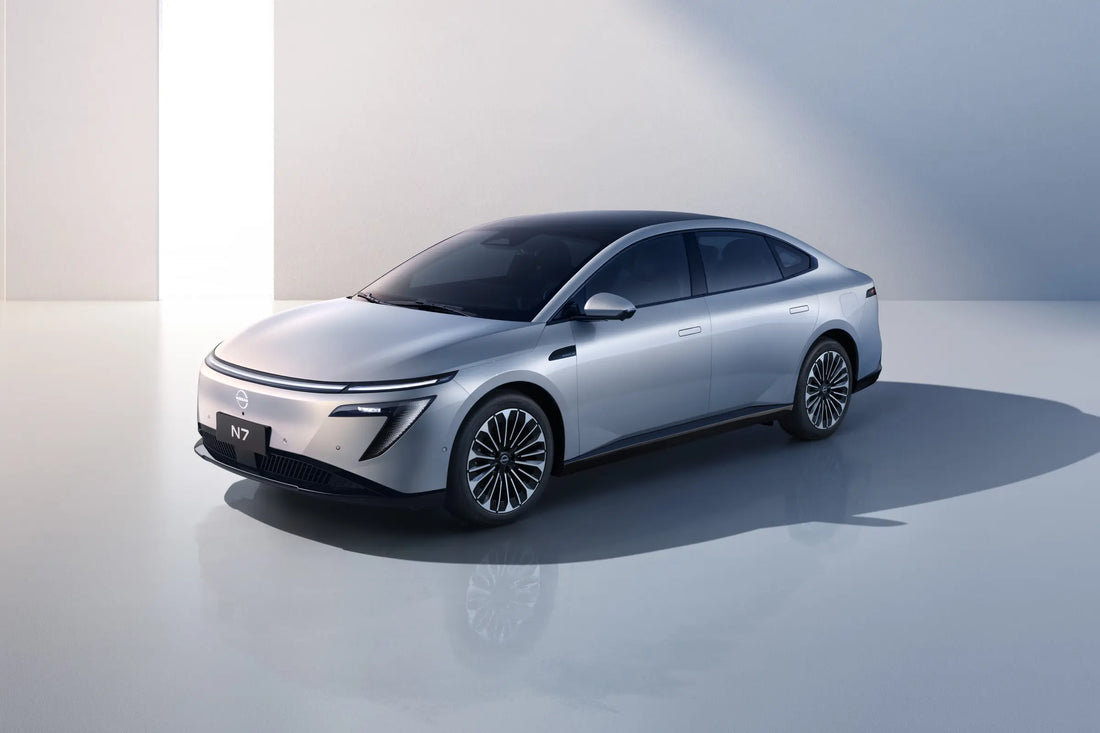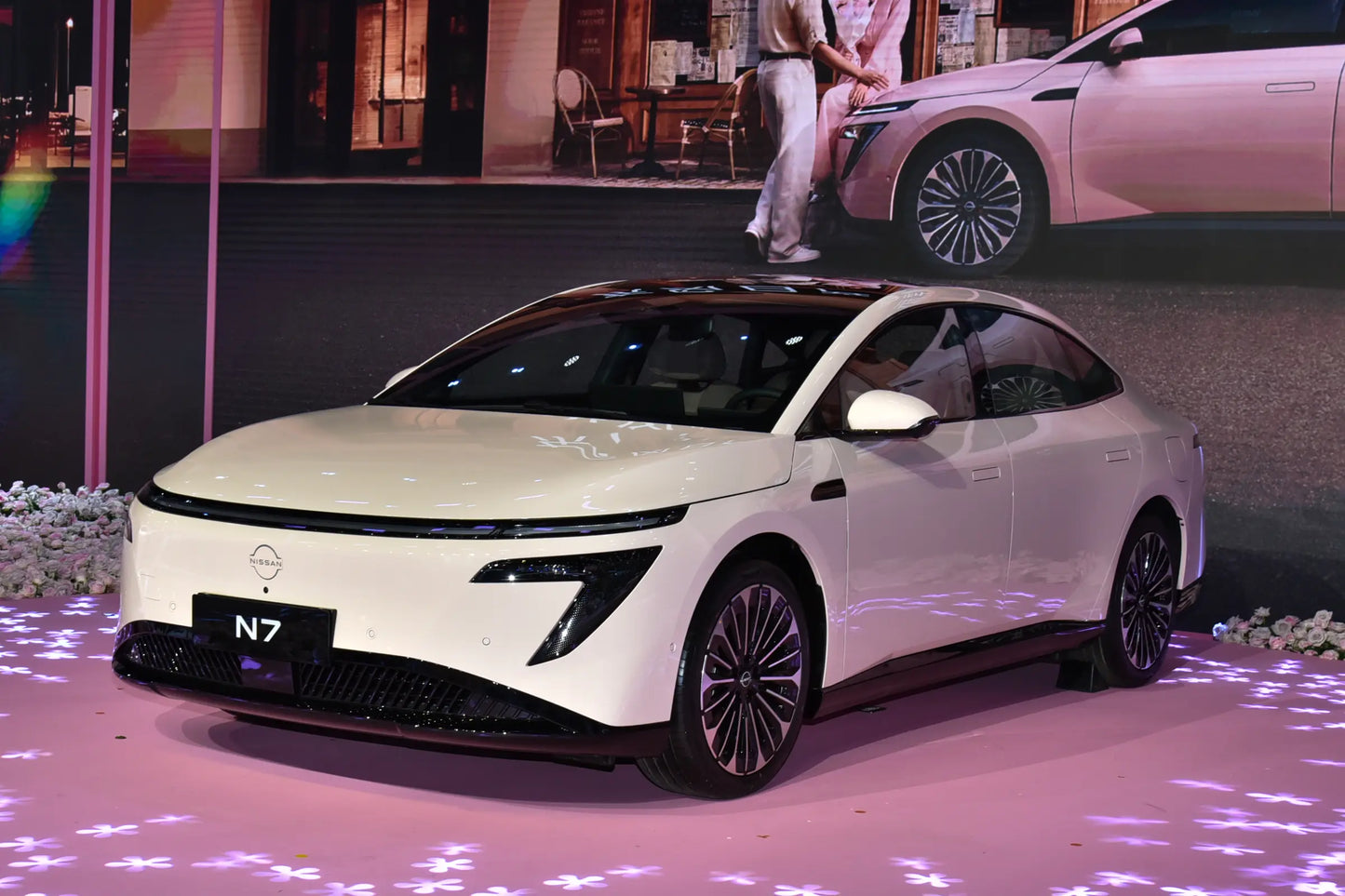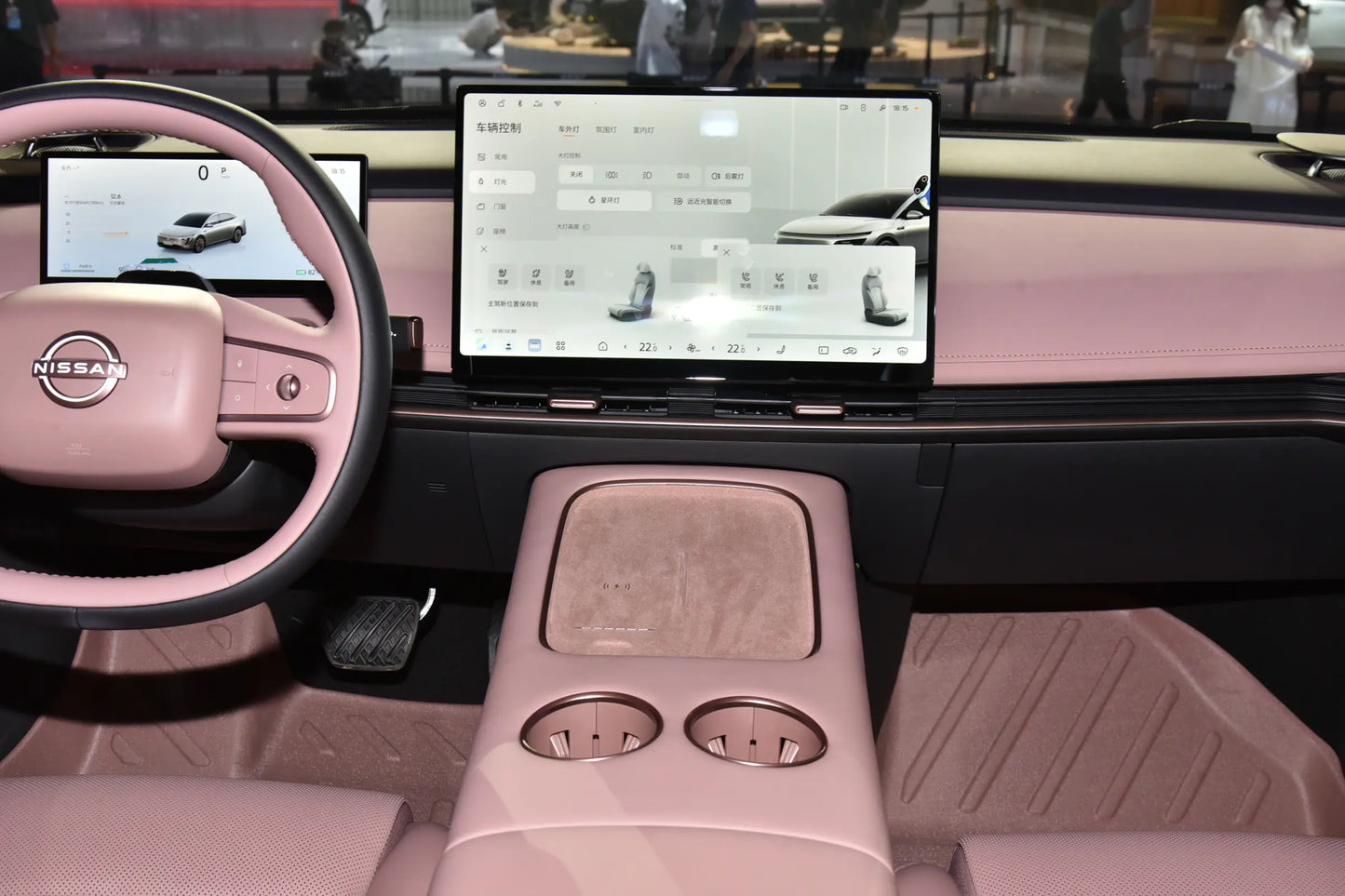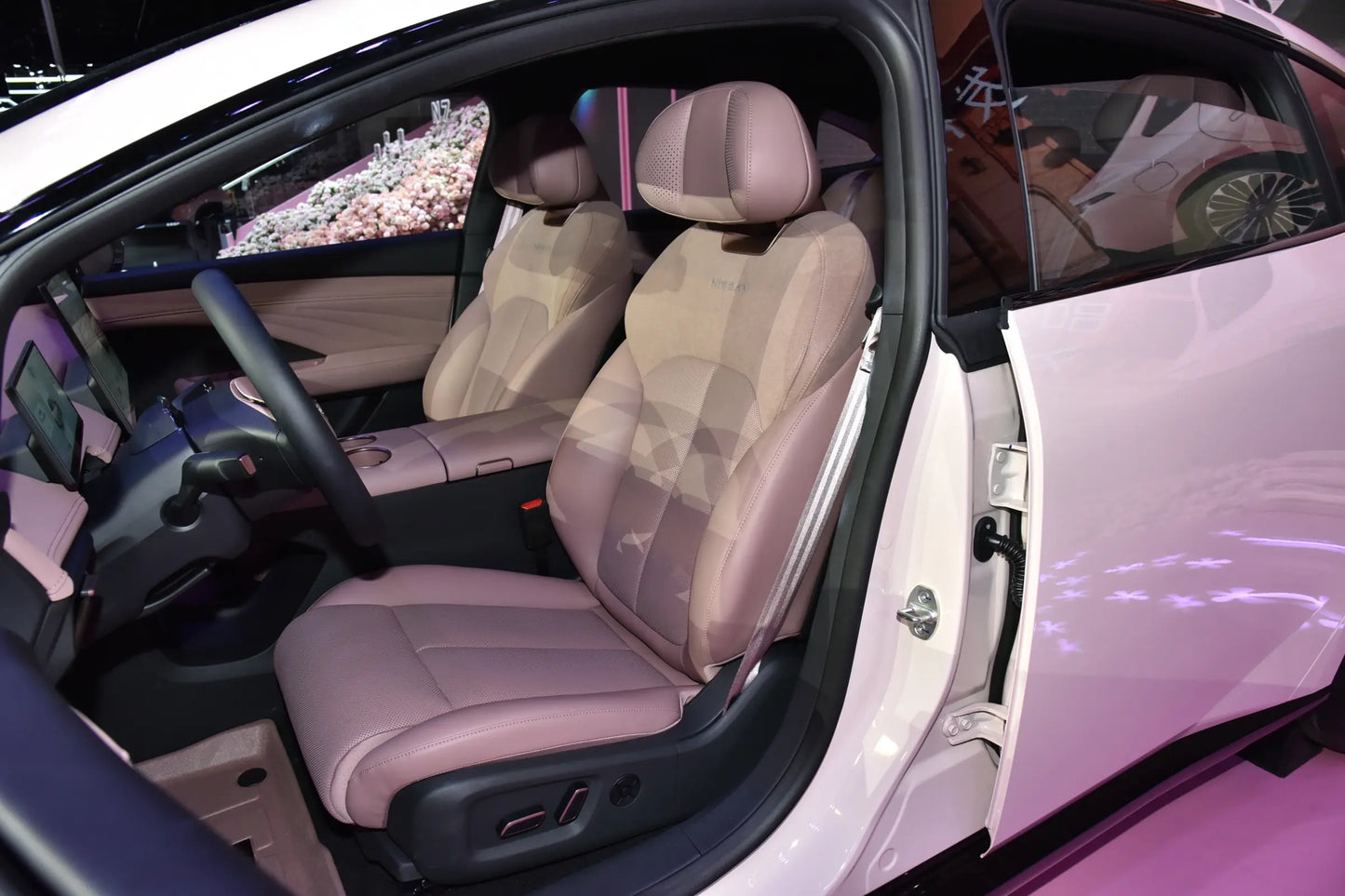Is Dongfeng Nissan N7 Worth Buying?

Vehicle Highlights:
-
With a class-leading fast charging time of 0.23 hours and a CLTC range of 625 km, combined with an energy consumption of 13.4 kWh/100 km, it meets both daily commuting and long-distance travel needs.
-
Standard equipped with an in-cabin occupant detection system, providing unique child and pet anti-forgetting protection in its class, reflecting deep consideration for safety.
-
Features seat ventilation and massage functions with multi-directional adjustments, along with smoothly tuned energy recovery, effectively enhancing ride comfort for family trips.
Please Note:
-
The trunk opening is relatively small and the rear seats cannot be folded down, resulting in weaker storage expandability compared to some competitors.
-
According to user feedback, the N7's power tuning prioritizes smoothness and may not suit users seeking aggressive driving.
-
The voice control system has limited permissions, rear visibility is partially obstructed, and tire performance on wet roads is average.
Basic Information
The Dongfeng Nissan N7 is a pure electric sedan launched by Dongfeng Nissan for the mainstream market. Since its release in April 2025, it has become a representative model for the new energy transformation of Nissan.
In August 2025, the N7 achieved monthly sales of 10,148 units, marking its first month with over 10,000 sales—a 57% increase compared to the previous month. It has now topped the sales chart for joint venture pure electric sedans for three consecutive months. Since its launch, the model's sales have continued to climb rapidly, growing from 665 units in April to over 10,000 units in August, demonstrating strong market momentum.
The 2025 Dongfeng Nissan N7 offers two range options: 510 km and 625 km (CLTC). The starting price is approximately $16,000, with the top-tier model priced around $21,000, targeting family users and the high-value travel market.
You can explore the vehicle’s exterior and interior design in detail via the following video:
Competitive Comparison
We have identified three pure electric models with a starting price within $1,500 of the Nissan N7 and compared their officially published parameters. The comparison reveals that the Nissan N7 2025 625 Max demonstrates unique advantages in safety technology and practical features when competing against peers such as the Galaxy E8, Changan Qiyuan A07, and eπ007 in the all-electric sedan segment.
-
Range & Energy Efficiency CLTC range of 625 km surpasses the Galaxy E8 (575 km) but falls short of the Changan Qiyuan A07 (730 km) and eπ007 (650 km). Its energy consumption of 13.4 kWh/100 km aligns with mainstream performance, though slightly higher than the Galaxy E8 (12.4 kWh/100 km). Overall, the range capability adequately meets daily household needs.
-
Charging Performance Fast charging takes only 0.23 hours, outperforming the Galaxy E8 (0.33 hours), Changan Qiyuan A07 (0.25 hours), and eπ007 (0.27 hours). Its charging efficiency ranks highest among the compared models, significantly enhancing convenience for users.
-
Power Performance Maximum power of 200 kW and a top speed of 160 km/h deliver smooth power output suitable for family daily use. However, its top speed is lower than sportier competitors like the Galaxy E8 (210 km/h).
-
Space & Practicality Body dimensions of 4930x1895x1487 mm offer moderate length, while the trunk capacity of 484 L provides well-organized and practical storage space, comparable to the Galaxy E8 (465 L) but less expandable than models like the Changan Qiyuan A07 (475-1125 L).
-
Unique Safety Technology Standard equipped with an in-cabin occupant detection system, it effectively monitors for left-behind children or pets to prevent accidents. This feature is exclusive in its class, highlighting its deep commitment to family safety.
Summary
The Nissan N7 625 Max excels in leading charging efficiency, unique safety technology for occupant detection, and well-balanced practical features. While it may not lead in top speed or space expandability, its precise safety considerations and efficient energy replenishment make it a reassuring choice for family users in the mid-to-high-end all-electric sedan market.
| Model / Parameter | Nissan N7 2025 625 Max | Galaxy E8 2025 575km Voyage Intelligent Driving Edition | Changan Qiyuan A07 2026 Ultra Long BlueWhale Pure Electric 730 Luxury | eπ007 2025 Pure Electric 650Pro Navigation Edition |
| Basic Infomation | ||||
| Driving Range (km)(CLTC) | 625 | 575 | 730 | 650 |
| Charging Time (hours) | Fast charging 0.23 hours | Fast charging 0.33 hours | Fast charging 0.25 hours | Fast charging 0.27 hours |
| Maximum Power (kW) | 200(272Ps) | 250(340Ps) | 190(258Ps) | 200(272Ps) |
| Maximum Torque (N·m) | 305 | 373 | 290 | 310 |
| Maximum Speed (km/h) | 160 | 210 | 172 | 171 |
| Body | ||||
| Vehicle Dimensions (mm) | 4930x1895x1487 | 5010x1920x1465 | 4905x1910x1480 | 4880x1915x1470 |
| Number of Seats (units) | 5 | 5 | 5 | 5 |
| Trunk Capacity (L) | 484 | 465 | 475-1125 | 452-1026 |
| Battery | ||||
| 100km Power Consumption (kWh/100km) | 13.4 | 12.4 | 12.5 | 12.6 |
| Battery Capacity (kWh) | 73 | 62 | 77.94 | 73.48 |
| Additional Features | ||||
| Auto Hold | Standard Equipment | Standard Equipment | Standard Equipment | Standard Equipment |
| Driver Assistance Camera | ● Rearview Camera ● 360° Panoramic View ● Transparent Chassis View ●Blind Spot Monitoring with Side Camera | ● Rearview Camera ● 360° Panoramic View ● Transparent Chassis View | ● Rearview Camera ● 360° Panoramic View ● Transparent Chassis View | ● Rearview Camera ● 360° Panoramic View ● Transparent Chassis View |
| Sunroof Type | Fixed Panoramic Sunroof | Fixed Panoramic Sunroof | Fixed Panoramic Sunroof | Fixed Panoramic Sunroof |
| Power Seats | ● Driver Seat ● Passenger Seat | ● Driver Seat ● Passenger Seat | ● Driver Seat ● Passenger Seat | ● Driver Seat ● Passenger Seat |
| Power Windows | Front and Rear | Front and Rear | Front and Rear | Front and Rear |
| In-cabin monitoring systems | Standard Equipment | - | - | - |
Data Source: DCAR
Real User Reviews
We collected a total of 558 user feedback entries through a questionnaire survey targeting real vehicle owners on the DCAR Auto Forum. Among these, 363 positive comments (categorized into 10 types) and 195 negative comments (categorized into 10 types) were recorded.
| Positive Feedback | Negative Feedback | ||
| Spacious interior | 136 | Unimpressive features | 86 |
| Comfortable ride | 76 | Poor range performance | 27 |
| Enjoyable driving experience | 28 | Insufficient storage space | 24 |
| Practical configurations | 27 | Poor tire performance | 15 |
| Stylish exterior | 20 | Simple infotainment system | 9 |
| Abundant features | 19 | Significant tire noise | 7 |
| Attractive interior design | 18 | Poor ADAS performance | 7 |
| Generous rear legroom | 15 | Noticeable abnormal noises | 7 |
| Powerful performance | 13 | Poor ergonomics | 7 |
| High-quality audio | 11 | Unsatisfactory chassis performance | 6 |
Data Source: DCAR
Positive Feedback
Excellent Overall Space
Summary: The legroom in both the front and rear rows is spacious, with no sense of confinement for tall passengers. It can meet the space needs of multi-member families traveling with pets.
-
"The rear legroom is very large—tall adults feel comfortable sitting in both the front and rear rows."
-
"Even with a family of four plus a dog, the space still feels more than adequate."
Excellent Stability and Range
Summary: The range performance is reliable, fast charging is efficient for energy replenishment, the driving experience is smooth and comfortable, and the linear acceleration prevents motion sickness.
-
"With seat ventilation, air conditioning, music, and external circulation all on, I drove 328km with 83% battery remaining, and still had 16% left when I arrived. Last night, it took just 35 minutes to fast-charge to 90%."
-
"The start-up is responsive, the braking is smooth, the steering feels stable while driving, and the acceleration doesn’t cause dizziness."
Great Riding Experience
Summary: It is equipped with comprehensive comfort features such as ventilated and massaging seats. The regenerative braking is tuned smoothly, effectively enhancing satisfaction during long-distance rides.
-
"Dongfeng Nissan N7 has seat massage and ventilation—no stuffiness in summer, and no tiredness during long trips. Details like footrests and lumbar supports are also fully equipped, so even the elderly and kids in the family don’t complain about sitting for a long time."
-
"In Comfort mode, the regenerative braking is barely noticeable. The car can coast to a stop just like a fuel-powered vehicle, and passengers in the rear say it doesn’t make them feel motion-sick like some other electric cars do."
Negative Feedback
Impractical Features
Summary: The permission settings for voice control are unreasonable, the trunk opening method is not convenient enough, and there is obstruction in the rear viewing field.
-
"Only the driver’s voice assistant can open the trunk—the front passenger’s cannot. To open the trunk, you either have to operate it on the central control screen or use the driver’s voice assistant. The Bluetooth key is too sensitive, and there’s no physical key button for the trunk."
-
"The rear windshield has a small slope, resulting in a narrow field of view; the rear headrests are large and block a lot of the view; the rearview mirrors are not very big. Due to these factors, you need to be extra careful when making right turns or parking."
Insufficient Storage Space
Summary: The trunk’s opening and height design are inconvenient, and the rear seats cannot be folded down. Installing a refrigerator further reduces storage flexibility.
-
"The trunk opening is limited, the height is relatively high, and the rear seats can’t be folded down."
-
"After installing a refrigerator, it feels like there’s barely any space left for storing other items."
Poor Tire Performance
Summary: The braking distance on wet roads is relatively long, and the low-profile tires increase the risk of blowouts.
-
"At traffic lights on rainy days, I have to slow down in advance. Sometimes, when braking at a speed of 50-60km/h, the car will slide forward."
-
"The tires have too low a profile—they’re very prone to blowouts when driving over potholes."






















